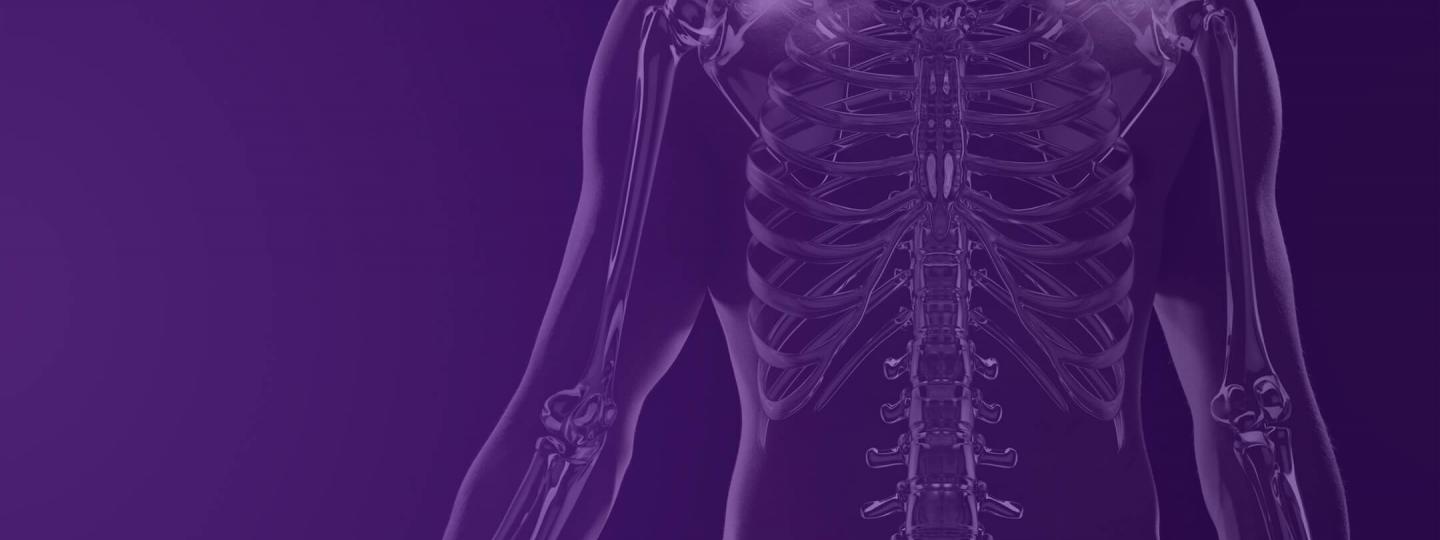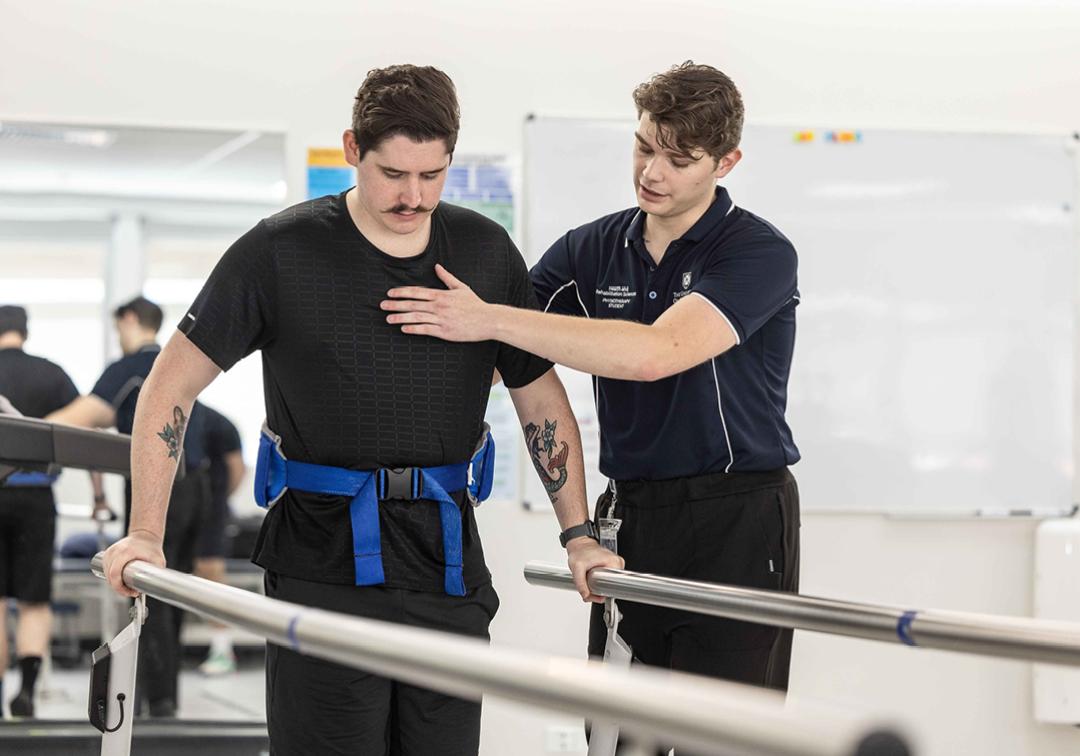
Master of Clinical Neuropsychology and Clinical Psychology
Overview
Become a leader in psychology and build the expertise to make a meaningful impact in the field of clinical neuropsychology and clinical psychology.
Designed for those who aspire to excellence and leadership, this program combines advanced training, through professionally focused coursework and specialist placements, with a research thesis.
During the program, you'll complete coursework covering clinical skills and assessment, as well as professional, ethical and interpersonal competencies and evidence-based practice. You’ll be trained in the discipline of clinical neuropsychology through specialist coursework and placements. Additionally, you'll receive advanced training in clinical reasoning and research to develop your understanding of clinical psychology and effective therapeutic practice.
Your research thesis will allow you to apply your skills and knowledge to deeply investigate your area of specialisation and build the foundation for your professional reputation and career.
You'll complete a minimum of 1,395 hours of supervised clinical practice, providing the opportunity to apply your knowledge, broaden your clinical experience and develop your professional skills in a real-life setting.
The program is recognised by the Psychology Board of Australia as providing suitable training towards eligibility for general registration as a psychologist. It also has full accreditation with the Australian Psychology Accreditation Council. Graduates of the program will be eligible to undertake Area of Practice Endorsement in the disciplines of both Clinical Neuropsychology and Clinical Psychology.
Program highlights
- Broaden your clinical experience by completing a minimum of 1,395 hours of supervised clinical practice.
- Establish your professional reputation through a research project and thesis.
- Learn from academics and professionals who've made major contributions to the field.
- Join the largest school of psychology in Australia.
How you'll learn
Your learning experiences are designed to best suit the learning outcomes of the courses you choose.
- Lectures
- Tutorials
- Work placements
- Research experience
- Laboratory work
- Workshops
Placements and work experience
What you'll study
At UQ, degrees are called 'programs' and subjects are called 'courses'. Here's a sample of the courses you could study in this program:
- Cognitive behaviour therapies for adults
- Assessment in psychological practice
- Functional neuroanatomy and cognitive disorders
- Clinical psychopathology
Career possibilities
Postgraduate study can take you anywhere. Here are some of the careers you could be on your way to:
- Clinical psychologist
- Clinical neuropsychologist
Next steps after graduation
Graduates from the clinical neuropsychology and clinical psychology specialisation typically work in hospital-based assessment services and traumatic brain injury rehabilitation.
Graduates typically take leadership roles in healthcare settings across the public, private and not-for-profit sectors, including:
- hospitals and health clinics
- community and support groups
- mental health organisations
- private practice
- schools and educational institutions
- government services and health departments
- defence forces
- courts and prisons
- rehabilitation centres
- aged-care facilities.
Professional memberships
When you graduate, you may be eligible for memberships with the following professional organisations. Contact the organisation to find out how to become a member.
- Australian Psychological Society
- APS College of Clinical Psychologists
- APS College of Clinical Neuropsychologists
Professional registration
When you graduate, you may be eligible for registration with the following professional organisations. Contact the organisation to find out how to register.
- Psychology Board Of Australia
Program accreditation
The Master of Clinical Neuropsychology and Clinical Psychology is accredited by:
- Australian Psychology Accreditation Council
Events
See all events
9 June
Master of Physiotherapy information webinar
Stories
See all stories
Careers
Transform your career with 4 business psychology courses
3-minute read

Uni life
What’s it like to study business psychology as a postgraduate?
5-minute read

UQ people
Chiemeka’s PhD story: cost-effective treatment for brain disorders
4-minute read
Stories
See all stories
Careers
Transform your career with 4 business psychology courses
3-minute read

Uni life
What’s it like to study business psychology as a postgraduate?
5-minute read

UQ people
Chiemeka’s PhD story: cost-effective treatment for brain disorders
4-minute read
Entry requirements
Entry requirements
To be eligible for entry, you'll need:
- A bachelor honours degree in psychology (minimum class IIA honours) or equivalent, 4-year Australian Psychology Accreditation Council (APAC) accredited degree.
- Applicants must be eligible for provisional registration or general registration with the Psychology Board of Australia.
Entry is competitive with a limited intake capacity. Applicants who identify as Aboriginal and/or Torres Strait Islander who meet the minimum entry requirements for this program will be offered an interview. On admission to the program, you will need to provide evidence of your Aboriginal and/or Torres Strait Islander status.
Applicants must also submit (via the Online Application):
- an Additional Application Information Form;
- you must have at least two completed referee reports in the Psychology Reference Portal (see additional information for applicants below);
- relevant academic transcripts, and a CV.
- A bachelor honours degree in psychology (minimum class IIA honours) or equivalent, 4-year Australian Psychology Accreditation Council (APAC) accredited degree.
- Applicants must be eligible for provisional registration or general registration with the Psychology Board of Australia.
Entry is competitive with a limited intake capacity. Applicants who identify as Aboriginal and/or Torres Strait Islander who meet the minimum entry requirements for this program will be offered an interview. On admission to the program, you will need to provide evidence of your Aboriginal and/or Torres Strait Islander status.
Applicants must also submit (via the Online Application):
- an Additional Application Information Form;
- you must have at least two completed referee reports in the Psychology Reference Portal (see additional information for applicants below);
- relevant academic transcripts, and a CV.
Relevant disciplines for previous qualifications
Psychology
English language requirements
IELTS overall 7; reading 7; writing 7; speaking 7; listening 7. For other English Language Proficiency Tests and Scores approved for UQ
TOEFL iBT (including Paper Edition) - Overall 100, listening 25, reading 25, writing 27, speaking 23.
PTE Academic - Overall 72, sub bands minimum 72.
CES - Overall 185, All sub bands minimum 185.
BE and OET are not accepted.
There are other ways to meet the English language requirements. For some programs, additional conditions apply.
Student visas
International students who are accepted into full-time study in the Master of Clinical Neuropsychology and Clinical Psychology are eligible to apply for an Australian student visa (subclass 500).
There are a number of requirements you must satisfy before a visa is granted, including the Genuine Student (GS) requirement.
Need help meeting the entry requirements?
Additional application information
Additional application information
Applicants with non-Australian degrees must have their qualifications assessed by the Australian Psychological Society. Irrespective of professional background, entry to the program will be considered on the basis of previous academic study, experience and personal qualities. Detailed application requirements can be found on the School of Psychology website.
Applicants must submit via the Online Application a Psychology Additional Information form, academic transcripts, and CV. In addition, two references will need to be submitted using the Australian Psychology Post-Graduate Program Reference Request System. Shortlisted candidates are required to undertake an interview.
Offers will be made on the basis of academic achievement, references and interview. There are limited places available for this program. A limited number of places are available for suitably qualified applicants on the basis of equity and students identifying as Australian Aboriginal and/or Torres Strait Islander are encouraged to apply.
All successful applicants are required to apply for and gain provisional registration or general registration with the Australian Health Practitioner Regulation Agency, which includes English Language Proficiency requirements. Students must be registered prior to commencing their study and must maintain registration for the duration of the program.
For applicants who need to provide evidence of English proficiency, please note that this program requires a higher level of English language proficiency than the UQ minimum.
Before you apply for this program, you must make sure you will be able to meet any placement requirements.
Fees and Scholarships
Indicative annual fee
Approximate yearly cost of tuition (16 units). Your fees will vary according to your selected courses and study load. Fees are reviewed each year and may increase.
$4,628
2025
Approximate yearly cost of full-time tuition (16 units). Your fees will vary according to your study load. Fees are reviewed each year and may increase.
AUD $50,560
2025
Additional costs
- Psychology Board of Australia Registration (approx total for 2 years $1000)
Government assistance
Financial aid
As an international student, you might be eligible for financial aid – either from your home country, or from the Australian Government.
HECS-HELP
Domestic places in the Master of Clinical Neuropsychology and Clinical Psychology are Commonwealth supported, as long as you meet all Commonwealth supported place eligibility requirements.
This means the cost of your education is shared between you and the Australian Government. Instead of tuition fees, Commonwealth supported students pay what are called student contribution amounts.
If you have a Commonwealth supported place, you may also be eligible for HECS-HELP. This is an Australian Government loan scheme to assist eligible students with the cost of their student contribution amounts.
Centrelink support
The Australian Government has approved this master's program for income support payments to be made to eligible students.
Scholarships
You may be eligible for more than 100 scholarships, including:
How to apply
Applying online
All international applications should be submitted to UQ. If you prefer, you can use an approved UQ agent near you.
The program code for the Master of Clinical Neuropsychology and Clinical Psychology is 5766.
Applying online
All domestic applications should be submitted to UQ.
The program code for the Master of Clinical Neuropsychology and Clinical Psychology is 5766.
Important dates
The closing date for this program is:
- To commence study in semester 1 - September 30 of the previous year.
Visa processing times vary. Apply and accept your offer as early as you can.
To learn more about UQ dates, including semester start dates, view the Academic Calendar.
Important dates
The closing date for this program is:
- To commence study in semester 1 - September 30 of the previous year.
To learn more about UQ dates, including semester start dates, view the Academic Calendar.
Aboriginal and Torres Strait Islander applicants
For support with applying – or if you have any questions about university life – get in touch with our Aboriginal and Torres Strait Islander Studies (ATSIS) Unit.
Explore other programs
Express yourself. And your interest.
They say choosing a degree is hard, which is why we've made it easy. Register your interest and we'll send you everything you need to know about applying to UQ.



